
Share This White Paper
Women’s Health 2022: A Grave Discrepancy Between Intent and Reality
Survey Data Overview:
An April 2022 Women’s Health Survey conducted by WomenCertified Inc, consists of over 2,800 women across America. This group is comprised of: 56% of Boomer women (58 years and older), 25% of Gen X women (42 – 57 years), 15% of Millennial women (26 – 41 years), and 5% of Gen Z women (18 – 25 years). The survey was distributed by the following ‘Know Where to Go, Know What to Do: Coalition for Women’s Health’ organizations: Women’s Choice Award; American Bone Health; Baby Quest Foundation; Better Sleep Council; Beyond Celiac; Casting for Recovery; Cervivor; Know Your Lemons; Live Today Foundation; National Eating Disorders Association; National Headache Foundation; Project Sweet Peas; Skin Cancer Foundation.
INTRODUCTION
Health and wellness matters fall to women. Women are responsible for the health of their spouses, children, aging parents, and finally-themselves. They are bridled with endless requirements to better care for their loved ones, but they themselves are falling behind. The concern has always been that women take the brunt of responsibility for health matters among their family, but what if the problem lies beyond their responsibilities to others? What if women have succumbed to less than acceptable health standards?
A recent April 2022 survey of 2,800 women across America, shows there is a grave discrepancy between what women intend upon for their optimal health, and what they are living in today’s reality.
Women would never allow their loved ones to suffer, but according to this research they themselves have become eerily accepting of feeling unwell, living with discomfort, and subpar sleep. In fact, women appear to accept this way of life as the norm, not the exception. Of course, women are intent upon doing better for themselves but how – and why not now?
A FALSE PERCEPTION OF HEALTH
In a recent survey of over 2,800 women across America, 72% of women would rate their personal level of health as ‘good’ or ‘very good’, yet among this same group, 61% of women say that they experience pain at least several times a week, with more than half of those women saying they experience pain or discomfort on a daily basis. From headaches, digestive discomfort, joint pain and other common ailments, women still view themselves as being in good health. The ramifications of this mindset contribute to the growing epidemic of women’s health concerns ranging from cardiovascular disease to mental health. In fact, health status indicators show that women in the U.S. have worse outcomes than women in other high-income countries.1
How would you rate your personal level of health?
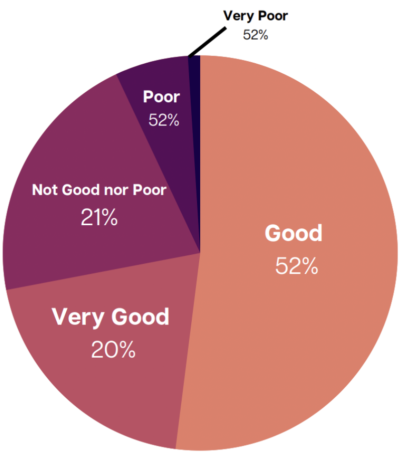
How often do you experience pain or discomfort in your body
(i.e. headaches; digestive discomfort; joint pain; etc.)
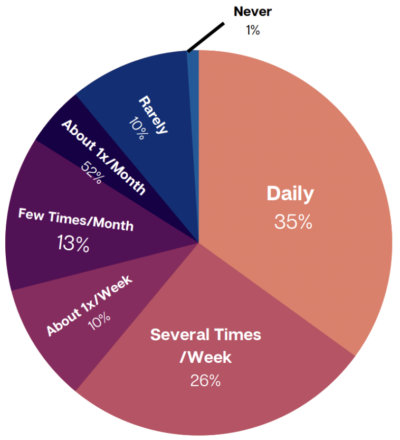
Across Generations
When analyzing the data across generations, the level at which women rate their personal level of health increases with age. Among those women who rate their health as ‘Very Good’, the generational breakdown is as follows: 26% Boomers; 15% Gen X; 11% Millennials; and 5% Gen Z. Aligned with this data are the percentage of women who rate their health as ‘poor’: 4% Boomers; 8% Gen X; 10% Millennials; and 17% Gen Z. There is no question that health tends to decline with age, so this insight further supports the premise that as women age their expectations for optimal health have decreased for one reason or another.
Also surprising is the generational breakdown for those women who say they experience pain or discomfort in their bodies either daily or several times a week: 61% Boomers; 62% Gen X; 56% Millennials; 70% Gen Z.
ENORMOUS ROOM FOR GROWTH
Eighty-four percent of women know that they can and should do more to improve their health. In fact, 60% admit to procrastinating on their health. And among the 80% of women in the survey who take medication regularly, 1 in 3 women (33%) admit to skipping their medications in the last year, with 40% of those women acknowledging a medication had (or could have had) a negative effect on their health.
Do you agree or disagree that you can and should do more to improve your health?
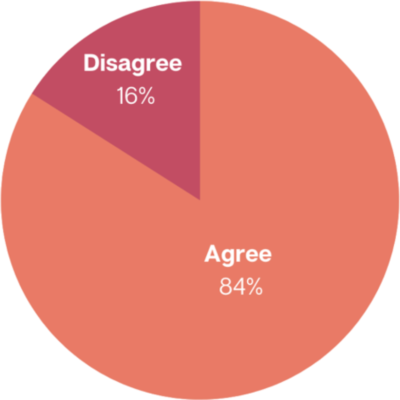
Across Generations
There is an almost equal acknowledgement among women that they can and should do more: 81% Boomers; 88% Gen X; 89% Millennials; 83% Gen Z.
Have you skipped taking any of your medications?
(Among those who have skipped taking their medication, 40% say it had, or could have had a negative effect on their health.)
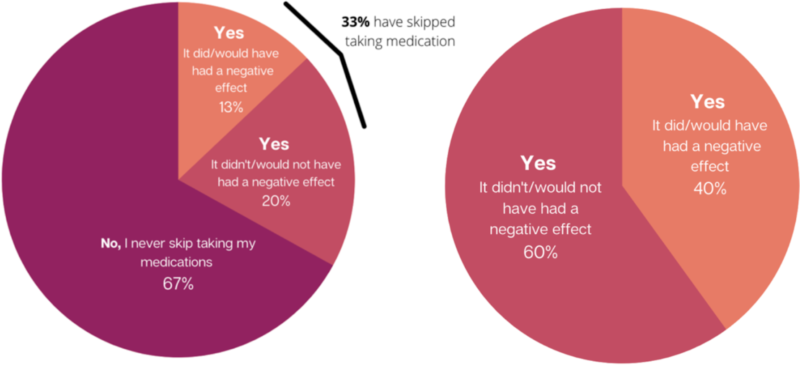
THE TRUMP CARD ON WOMEN’S HEALTH
So the question then becomes, why? When asking women what matters trump their health, only 33% of women say that their health is their priority. From children and spouses, to work, lack of motivation, family demands, cost of treatment, and aging parents, there is no shortage of responsibilities that women feel they must put ahead of their own. Equally concerning is the lack of motivation women feel toward their own health, with 1 in 4 women saying they are not motivated. But data implies this motivation is not so much lost as it is misplaced with the (perceptually) more important health matters of others.
What trumps your health? Select all that apply.
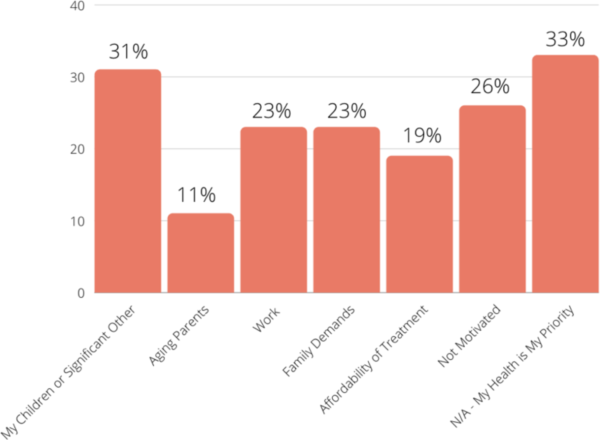
Across Generations
As responsibilities change through life stages, so do priorities. Across generations, these breakdowns demonstrate the demands women face in prioritizing her health.
| What Trumps Prioritizing Women’s Health? | |||||||
| Children/Spouse | Aging Parents | Work | Family Demands | Affordability | Lack of Motivation | N/A: My health is my priority | |
| Gen Z (18-25) | 17% | 7% | 51% | 20% | 33% | 46% | 15% |
| Millennials (26- 41) | 45% | 11% | 42% | 38% | 30% | 29% | 16% |
| Gen X (42-57) | 43% | 18% | 33% | 32% | 21% | 29% | 21% |
| Boomers (58+) | 24% | 9% | 12% | 16% | 14% | 22% | 44% |
WOMEN AND SUN SAFETY
Women’s understanding of risk factors for specific health concerns continue to be mismatched with the actions they take to circumvent them. For example, over 99% of women are aware that sun tanning and sunburns can cause skin damage that leads to skin cancer, yet almost 20% of women ‘rarely’ or ‘never’ wear sunscreen, and 7% go as far as saying ‘They don’t worry about sun protection’. Moreover, only 45% of women have ever visited a dermatologist for a full body scan.
How often do you wear sunscreen?
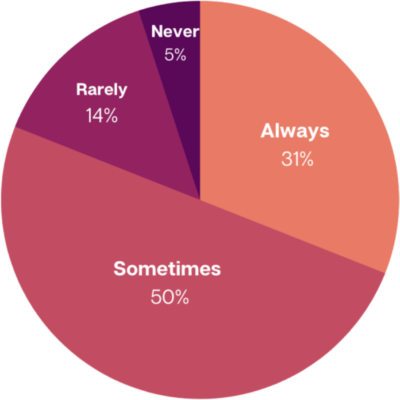
Have you ever visited a dermatologist for a full body scan?
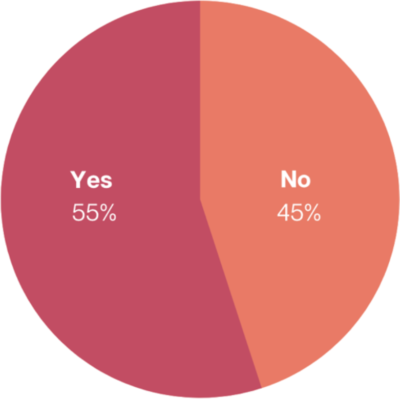
How do you protect your skin from the sun? Select all that apply.
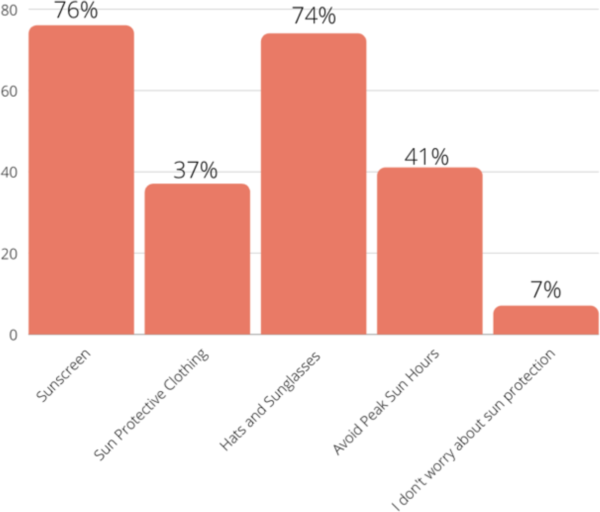
Across Generations
Across generations there is a steady and significant increase in the number of women who have ever visited a dermatologist: 65% Boomers; 53% Gen X; 37% Millennials; 18% Gen Z.
WOMEN AND HEADACHES
Another discrepancy can be found in the prevalence of headaches among women. Over half of all women experience headache and/or migraine attacks, but 44% of those women have never sought medical treatment.
Do you experience migraine or headache attacks?
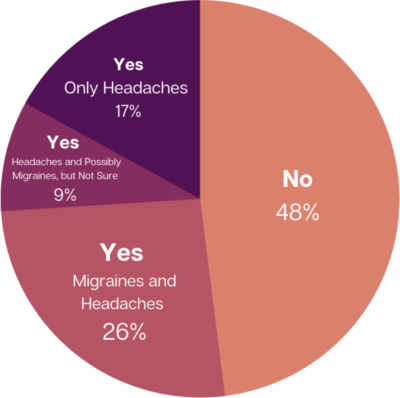
Have you ever sought medical treatment for your migraine or headache attacks?
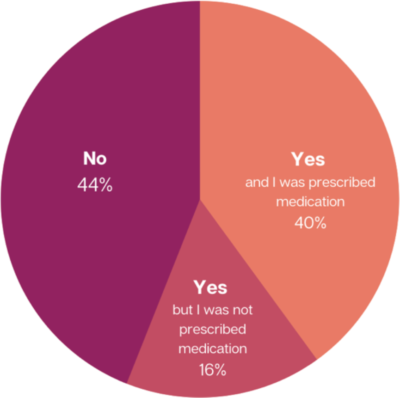
Across Generations
Across generations there are statistically significant variations. Of those who say they do not experience headache or migraine attacks, the majority of these women are Boomers: 59% Boomers; 38% Gen Z; 27% Millennials; 24% Gen X.
WOMEN AND SLEEP
Quality sleep is a cornerstone to overall health, including boosting the immune system, supporting the body’s recovery from infection and inflammation, and improving mental wellbeing. Despite the evidence that sleep must be considered an essential and critical factor for optimal health, too many women are living with less than optimal sleep lifestyles. In fact, over half of women (51%) rate their sleep as ‘Fair’ or ‘Poor’, while the remaining 49% say their sleep can be described as good (40%) or excellent (8%). Moreover, less than 4% say they feel rested and refreshed every morning they wake up, and more than 1 in 4 women (30%) say they ‘rarely’ or ‘never’ wake up feeling rested or refreshed in the morning.
On average how would you describe your sleep in the last two weeks?
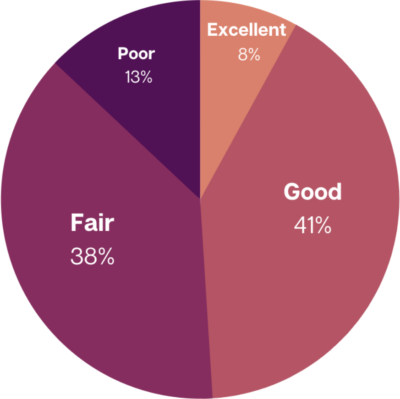
On average within the last two weeks, how often have you woke up in the morning feeling rested or refreshed?
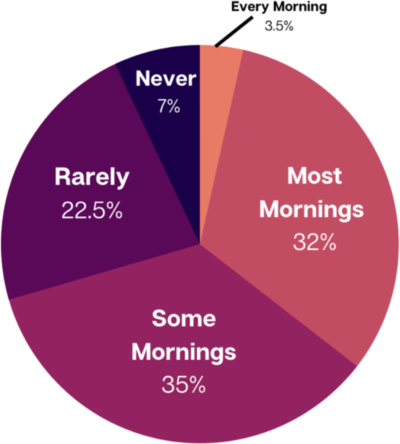
Across Generations
Data illustrates that each generation of women has their own obstacles preventing them from a good, quality night’s sleep. The research did not highlight these myriad of reasons but about 50% of women from each generational subset say their sleep within the last two weeks would be described as ‘Fair’ or ‘Poor’. And, across generations the largest percentage of women who say they woke up feeling rested and refreshed every morning or most mornings, were the Boomers: 44% Boomers; 28% Gen X; 21% Millennials; 20% Gen X.
| Women’s Rating of Their Sleep in the Last 2 Weeks | ||||
| Excellent | Good | Fair | Poor | |
| Gen Z (18-25) | 10% | 38% | 36% | 16% |
| Millennials (26- 41) | 5% | 40% | 41% | 14% |
| Gen X (42-57) | 7% | 36% | 40% | 17% |
| Boomers (58+) | 10% | 42% | 37% | 11% |
WOMEN AND BREAST HEALTH
Breast health for women includes breast exams from physicians, breast self-exams, mammograms and of course, awareness of the signs and symptoms of breast cancer. While it’s a positive indication that 60% of women say they go for a mammogram every 1 to 2 years, depending on what has been recommended to them, and 15% don’t go simply because they are not at the ‘recommended age’, 10% of women say they have ‘missed a year here and there’, and 11% say they ‘don’t think it’s needed’ for them. Also notice that about 5% of women don’t go because it ‘seems scary’ or they have ‘finance or transportation issues’. While 5% seems like a small percentage, that still constitutes 137 of the women surveyed- and when that data expands to represent 5% of the U.S. female population, it’s in the millions.
Moreover, 1 in 5 women are not confident in how to conduct a breast self-exam, leaving significant room for growth in breast health awareness and breast cancer prevention, and 40% do not conduct breast self-exams regularly.
Are you confident in how to conduct a breast self-exam?
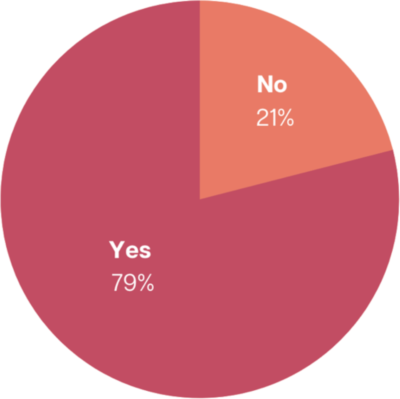
Do you conduct a breast self-exam regularly?
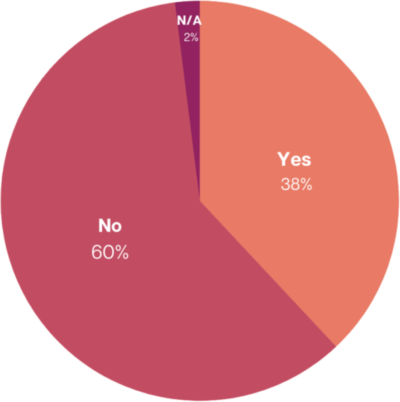
What keeps you from doing a mammogram?
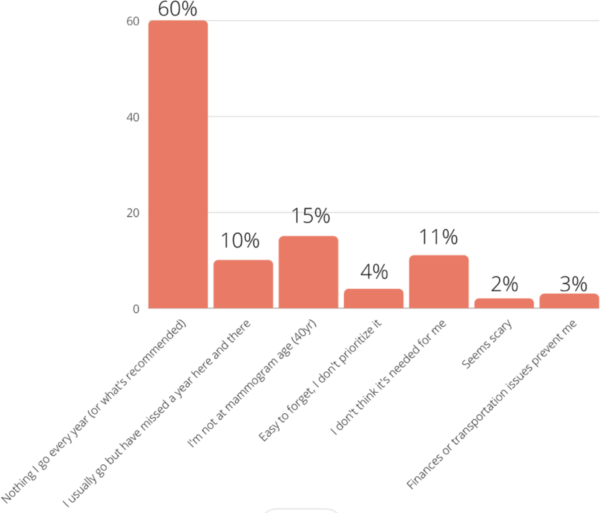
WOMEN AND BODY IMAGE
53% of women have experienced a more challenging relationship with food in the last two years. And on a sliding scale of 1 to 10 for how pressured women feel to change their bodies, there is a wide array of responses.
Have you experienced a more challenging relationship with food in the last two years?
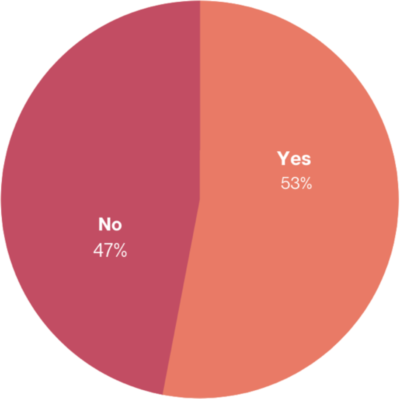
On a scale of 1 to 10, how pressured do you feel to change your body?
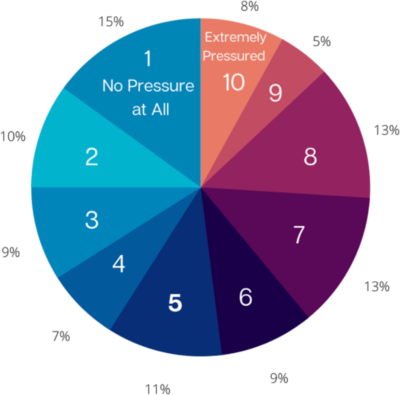
Across Generations
The prevalence of women who say ‘yes’ to having had a more challenging relationship with food in the last two years, decreases through the generations. Nonetheless almost half of Boomers are still facing a struggle with food: Boomers 47%; Gen X 58%; Millennials 63%; Gen Z 78%
Similarly, the pressure women feel to change their body decreases through the generations but still presents a clear obstacle for women across all stages of life. Women who gave a rating of 7 or above (with 10 being ‘extremely pressured’) are as follows: Boomers 31%; Gen Z 48%; Millennials 52%; Gen X 57%. More specifically, here is a breakdown of women across the generations who gave the highest rating of 10 indicating that they are ‘extremely pressured’: Boomers 5%; Gen X 10%; Millennials 10%; Gen Z 20%.
WOMEN AND BONE HEALTH
When providing women with scenarios on potential bone health challenges, women had high intentions of addressing matters. Sixty-seven percent of women said that they would be ‘extremely likely’ to discuss results with their healthcare provider if they answered a series of questions that showed they were at high risk of breaking a bone in the next 10 years. Of the remaining women, the majority said they’d be ‘somewhat likely’.
With regard to taking action on bone health matters, the vast majority of women at 89% said that they were either ‘extremely likely’ or ‘somewhat likely’ to follow a personal bone health plan from a trustworthy source on building strong bones and preventing fractures.
If you answered a set of questions and found that you were at high risk of breaking a bone in the next 10 years, how likely would you be to discuss the results with your healthcare provider?
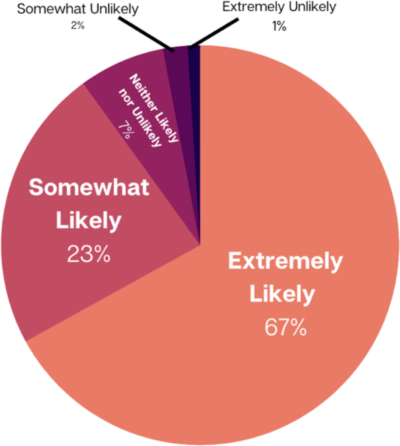
If you answered a set of questions and found that you were at high risk of breaking a bone in the next 10 years, how likely would you be to discuss the results with your healthcare provider?
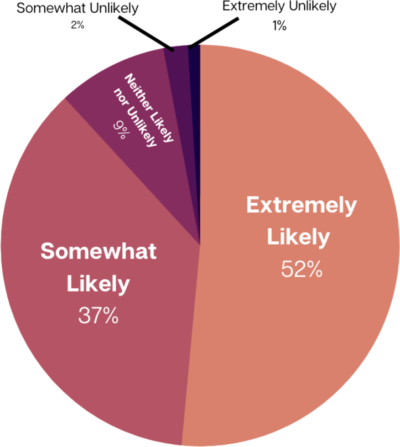
Across Generations
The Boomer and Gen X women were much more inclined to discuss results with their health care provider if they found they were at high risk for breaking a bone in the next 10 years. Of those who selected they’d be ‘extremely likely’, are as follows: Boomers 75%; Gen X 67%; Millennials 48%; Gen Z 35%.
Of those women who would be ‘extremely likely’ or ‘somewhat likely’ to follow a personal bone health plan from a trustworthy source, the breakdown across generations is as follows: Boomers 91%; Gen X 87%; Millennials 86%; Gen Z 82%. It is noteworthy that of those women who said they would be ‘extremely likely’ to follow a personal health plan there was a significant difference across generations: Boomers 61%; Gen X 48%; Millennials 34%; Gen Z 20%.
THE SILVER LINING FOR WOMEN’S HEALTH
Women acknowledge there is more that they need to do for themselves. And with a strong intent to prioritize their health, women have already won half the battle. Ever-growing responsibilities however, require that resources are not only available but also easily accessible.
The more awareness of women’s health matters, combined with a resource that provides women with easily accessible and trustworthy sources, yields a higher propensity that women will make their health a priority – and make optimal health the norm, not the exception.
The “Know Where to Go, Know What To Do” coalition for women’s health is a group of organizations with a single shared mission: to educate and empower women to take responsibility for their well-being, understand their health, and increase awareness of their unique health needs. By working together, the Coalition will assure women have the education, support and tools to make their health a priority.
As such, the 2022 Women’s Healthy Survey was distributed by the following Know Where to Go, Know What to Do: Women’s Health Coalition organizations: Women’s Choice Award; American Bone Health; Baby Quest Foundation; Better Sleep Council; Beyond Celiac; Casting for Recovery; Cervivor; Know Your Lemons Foundation; Live Today Foundation; National Eating Disorders Association; National Headache Foundation; Project Sweet Peas; Skin Cancer Foundation.
For more information on how we can support your research efforts, please contact us.

